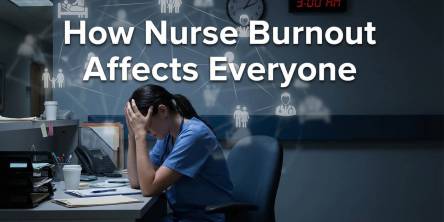The Difference Between FSS and Medicaid Waiver Services: How to Combine Both for Maximum Benefit

Families supporting loved ones with intellectual and developmental disabilities often face the question: which program to choose — OPWDD Family Support Services (FSS) or Medicaid Waiver Services? Both programs provide essential assistance but have different goals, eligibility criteria, and forms of support. Let’s break down their differences and how to effectively use both to improve quality of life.
What Are Family Support Services (FSS)?
Family Support Services is a program developed by the Office for People With Developmental Disabilities (OPWDD) that provides assistance to families caring for individuals with special needs. These services to support families are available to both Medicaid-registered and non-registered individuals. The primary goal of FSS is to support families in daily life and ease the burden of caregiving.
Read more: Online Tips and Tricks for Healthcare Marketing
Key FSS Services:
- Respite care
- Family reimbursement
- Educational and training programs
- Psychological support and self-help groups
- Assistance with transportation and household needs
Key Features of FSS:
- No Medicaid registration required
- Broader access to services, regardless of income level
- Primarily aimed at supporting the family rather than directly assisting the individual with disabilities
What Are Medicaid Waiver Services?
Medicaid Waiver Services is a federally funded program managed by OPWDD that allows individuals with intellectual and developmental disabilities to receive services outside the standard Medicaid system. This program is designed for those who require long-term support and care.
Key Medicaid Waiver Services:
- Personalized planning and support
- 24/7 care (including home assistance)
- Employment and education support
- Home modifications and assistive technology
- Community integration services
Key Features of Medicaid Waiver:
- Requires Medicaid registration
- Focused on the individual with disabilities rather than the family
- Provides a broader range of medical and social services
Key Differences Between FSS and Medicaid Waiver Services
| Criteria |
Family Support Services (FSS) |
Medicaid Waiver Services |
| Availability |
Available even without Medicaid registration |
Requires mandatory Medicaid registration |
|
Target Audience |
Primarily for the family caring for the individual |
Directly for the individual with disabilities |
|
Types of Services |
Respite care, financial assistance, training, support |
Medical services, long-term care, community integration |
|
Application Process |
Simpler and faster, fewer bureaucratic steps |
More complex, requires extensive documentation and needs assessment |
| Funding |
Government and private funds |
Federal and state funding |
How to Combine FSS and Medicaid Waiver Services for Maximum Benefit
- Use FSS for immediate support. If you need urgent assistance or respite care, FSS can provide quick access to services while your Medicaid Waiver application is being processed.
- Combine services to cover all needs. For example, FSS can address short-term needs (transportation, training), while Medicaid Waiver can provide long-term care and rehabilitation.
- Take advantage of financial benefits from both programs. FSS offers reimbursement for caregiving expenses, while Medicaid Waiver can cover medical and specialized services.
- Plan the transition between programs. Start with FSS for immediate support while simultaneously applying for Medicaid Waiver for long-term assistance.
- Consult a Care Manager for guidance. These specialists can help you navigate the programs, gather documents, and organize comprehensive support.
-
Conclusion
Family Support Services and Medicaid Waiver Services are two essential programs, each addressing unique needs. By combining them, families can receive both immediate and long-term assistance, significantly easing the caregiving burden. Understanding the differences between these programs and using them together ensures the best quality of life for the entire family.
FAQs
Can I use both FSS and Medicaid Waiver Services at the same time?
Yes, combining both programs allows families to access immediate support through FSS while securing long-term care and specialized services through Medicaid Waiver.
2. Do I need Medicaid registration to access Family Support Services (FSS)?
No, FSS is available to both Medicaid-registered and non-registered individuals, making it accessible to a broader audience.
3. What types of services does Medicaid Waiver provide?
Medicaid Waiver Services include personalized planning, 24/7 care, employment support, home modifications, assistive technology, and community integration services.
Similar Articles
A speech therapist, also known as a speech-language pathologist, is a healthcare professional specializing in the assessment, diagnosis, and treatment of communication and swallowing disorders.
Explore the biggest health trends that shaped 2025, from personalized nutrition to matcha and recovery—plus what wellness trends are coming in 2026.
Winter is a season when the body needs extra nourishment, warmth, and immunity support. According to Ayurveda and modern nutrition science, dry fruits play a vital role in maintaining health during cold weather.
Most people think health problems start suddenly. One day you feel fine, the next day something is wrong. In reality, most health issues develop slowly .They grow quietly in the background while life keeps moving.
The start of a new year is a natural time to pause, reflect, and think about how you want to feel in the months ahead. For those over 60, a fresh start does not mean setting unrealistic resolutions or making drastic changes.
Picture this: You're parked at your workspace, battling to focus on what should be a straightforward five-minute task. That afternoon slump? It's demolishing you today.
Joint pain and arthritis are common health issues that tend to become more intense during the winter season
Discover the benefits, challenges, and future of locum medical jobs. Learn how locum recruitment agencies support flexible, diverse career opportunities for healthcare professionals seeking dynamic work environments.
Burnout in the healthcare environment is a significant and growing crisis.









